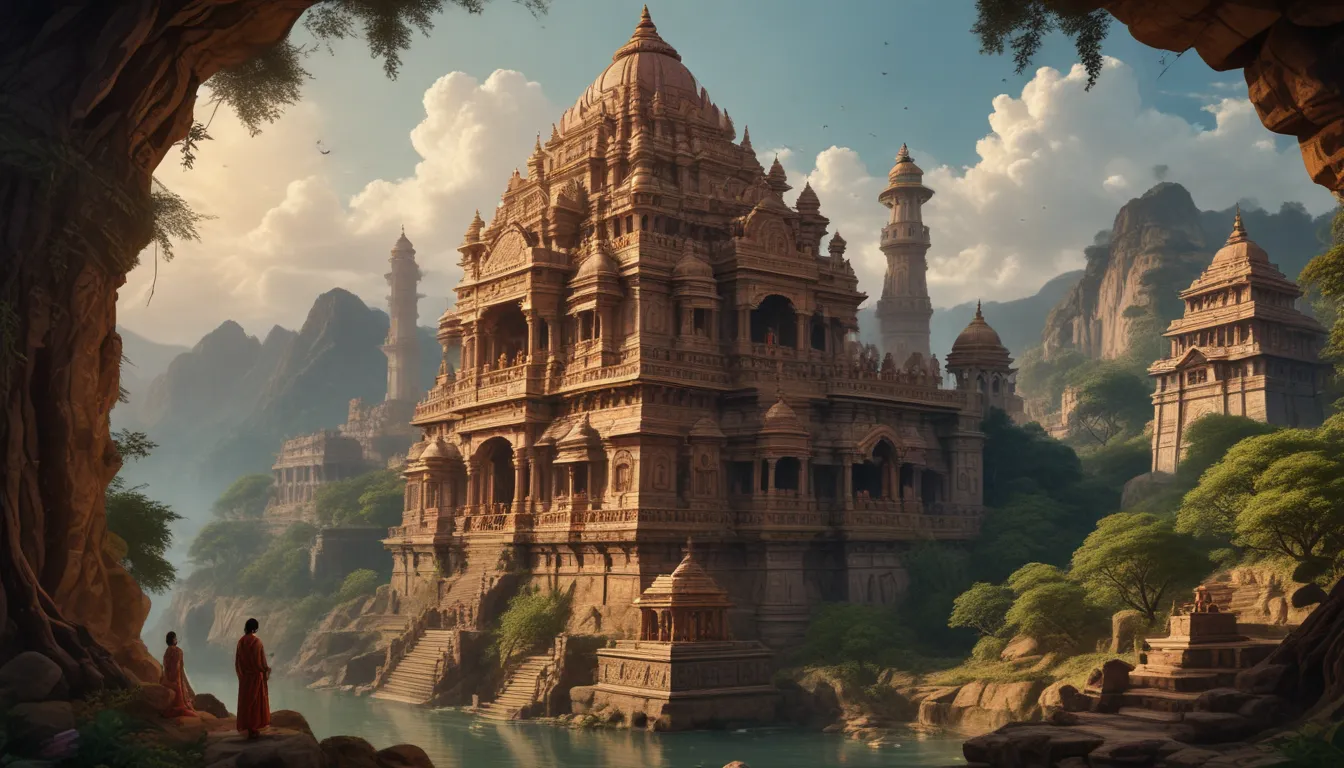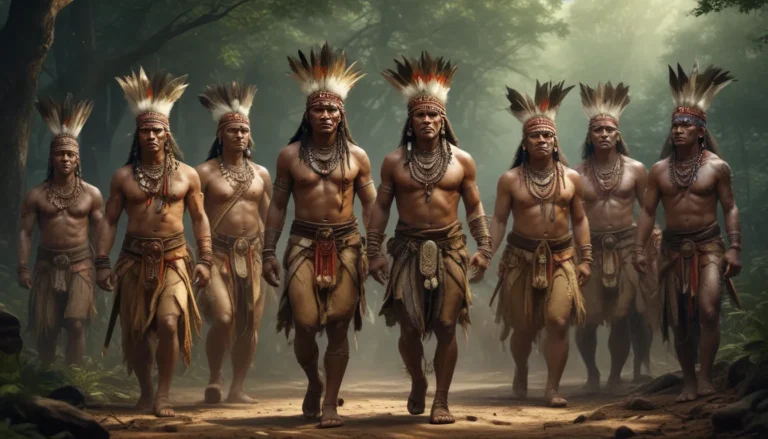The images in our articles may not match the content exactly. They are used to grab your attention, not to show the exact details in the text. The images complement the text but do not replace it.
Welcome to a journey through the captivating wonders of ancient India, where innovation, wisdom, and cultural richness intertwined to shape a civilization that continues to influence the world today. From the birthplace of chess to the concept of zero, and from the art of navigation to the practice of meditation, ancient India’s contributions are vast and impactful. Join us as we delve into 32 fascinating facts that showcase the brilliance and ingenuity of this ancient civilization.
Ancient India: A Cradle of Innovation and Wisdom
Ancient India was not just a geographical region; it was a cradle of civilization that birthed groundbreaking ideas and practices that continue to shape the world we live in today. From inventing chess and the concept of zero to pioneering yoga and the decimal system, ancient Indians were trailblazers in various fields of knowledge. Their legacy extends beyond inventions to encompass literature, music, cuisine, and festivals, showcasing the enduring influence of their civilization on modern life.
The Birthplace of Chess: Chaturanga
Long before chess became a global pastime, ancient India introduced the world to the strategic game of Chaturanga around the 6th century AD. Unlike modern chess, Chaturanga mirrored the complexities of real warfare, teaching players strategies and foresight on a checkered board battlefield.
- Chess, or Chaturanga, was not merely a game but a reflection of the battlefield, imparting strategic thinking and foresight to its players.
The Concept of Zero: Revolutionizing Mathematics
Among ancient India’s most significant contributions to the world is the concept of zero. This mathematical invention not only revolutionized arithmetic but also laid the foundation for modern mathematics and scientific advancements.
- The symbol for zero, a dot indicating emptiness, was first utilized in India, with mathematician Brahmagupta later defining zero as a number in its own right.
Ayurveda: The Science of Life and Wellness
Ayurveda, meaning “the science of life,” was developed over 3,000 years ago in India. This holistic healing system emphasizes the delicate balance between mind, body, and spirit for maintaining personal health and wellness.
- Ayurveda focuses on natural methods such as diet, herbal treatments, and yogic breathing techniques to promote overall well-being.
Takshashila University: The World’s First Educational Institution
Established in 700 BC, Takshashila University in ancient India was a renowned educational institution offering over 64 different fields of study, attracting students from around the world. Notable scholars like Chanakya were among its alumni, contributing significantly to its legacy.
- Takshashila University boasted a diverse curriculum covering medicine, mathematics, astronomy, and philosophy, setting a high standard for educational excellence.
Mohenjo-Daro: Architectural Marvels and Urban Planning
The ancient city of Mohenjo-Daro, part of the Indus Valley Civilization, showcased advanced urban planning and architectural skills around 2500 BCE. Its well-planned streets, sophisticated drainage systems, and remarkable Great Bath highlight the architectural prowess of ancient Indians.
- Houses in Mohenjo-Daro featured baked brick construction, private baths, and a connected drainage system, demonstrating sophisticated urban planning for the time.
The Art of Navigation: Mastering the Seas
Ancient Indians were pioneers in navigation, sailing to distant lands utilizing stellar and solar navigation techniques long before the compass was invented. Their maritime expertise enabled trade with regions like Arabia and Africa as early as 3000 BCE.
- The Sanskrit word “navgatih” is the root of the term “navigation,” reflecting ancient India’s prowess in sea exploration and trade.
Sanskrit: Language of Literature and Legacy
Sanskrit, an ancient Indo-European language originating over 3,500 years ago in India, is not only the language of Hinduism and classical Indian literature but also a linguistic ancestor to many modern languages.
- The Rigveda, composed around 1500 BCE in Sanskrit, remains one of the oldest texts in any Indo-European language, showcasing the enduring influence of ancient Indian culture on literature.
The Decimal System: Foundation of Modern Mathematics
Another monumental contribution of ancient India is the decimal system, based on ten, described in the 5th century AD by mathematician Aryabhata. This system revolutionized arithmetic and paved the way for algebra, calculus, and other branches of mathematics.
- Aryabhata’s depiction of the decimal system with place value made calculations more accurate and efficient, laying the groundwork for modern mathematical operations.
Kalaripayattu: Ancient Martial Arts
Kalaripayattu, an Indian martial art dating back over 3,000 years, predates many Asian martial arts. It integrates combat techniques with mental focus and spiritual elevation, influencing the development of martial arts across Asia.
- Kalaripayattu emphasizes physical prowess, mental discipline, and spiritual elevation, embodying a holistic approach to martial arts practice.
Contributions to Astronomy: Understanding the Cosmos
Ancient Indian astronomers like Aryabhata made significant contributions to the field of astronomy, accurately calculating celestial positions and theorizing about the nature of the universe. The Surya Siddhanta contains precise calculations of planetary diameters.
- Aryabhata’s calculations included the Earth’s rotation period and heliocentric theory, showcasing ancient India’s advanced understanding of celestial mechanics.
Spices and Flavors: The Richness of Indian Cuisine
Indian cuisine, rooted in a history spanning over 5,000 years, boasts a diverse array of spices and flavors. Ancient Indians were among the first to cultivate and use spices like turmeric, cumin, and mustard for culinary and medicinal purposes.
- Spices in ancient India were valued not only for their flavor but also for their health benefits, contributing to the rich tapestry of Indian culinary traditions.
Indian Music: A Melodic Tapestry of Culture
Indian music, with its intricate rhythms and scales, has a rich history reflecting the cultural diversity of the country. The Samaveda, dedicated entirely to music, underscores the significance of music in ancient Indian society.
- Indian classical music, encompassing traditions like Hindustani and Carnatic, has influenced musical styles worldwide, showcasing the deep-rooted cultural connection of music in Indian heritage.
Meditation: A Path to Inner Peace
The practice of meditation, integral to spiritual and philosophical traditions in ancient India, emphasizes inner peace and self-realization. Ancient meditation techniques detailed in scriptures continue to inspire mindfulness practices globally.
- Ancient Indian scriptures contain detailed meditation practices, highlighting the importance of mental well-being and self-awareness in spiritual growth.
Modern Science and Technology: Ancient India’s Influence
Ancient India’s contributions to science and technology have left an indelible mark on the modern world. Concepts like the binary number system and advanced medical knowledge in fields like plastic surgery continue to impact contemporary practices.
- Indian scholar Pingala described the binary number system in the 5th century AD, a foundational concept for computer operations influencing modern technology.
Festival Traditions: Celebrating Cultural Heritage
India’s tradition of festivals, rooted in ancient times, reflects the country’s rich cultural heritage and religious diversity. Celebrations like Diwali and Holi embody the spirit of unity and joy, preserving ancient narratives and values.
- Festivals like Navaratri and Durga Puja symbolize the triumph of good over evil, showcasing the vibrant cultural tapestry of ancient Indian traditions.
Embracing Ancient India’s Legacy
Ancient India’s legacy is a testament to its advanced civilization, encompassing myriad fields of knowledge and cultural expressions. The enduring influence of ancient Indian innovations, philosophies, and traditions continues to inspire and enlighten the modern world, connecting us to a past rich with wisdom and ingenuity.
Unlocking Ancient India’s Wonders
Ancient India’s tapestry of innovation, spirituality, and culture remains a source of fascination and inspiration for generations to come. From the strategic brilliance of chess to the mathematical concept of zero, each facet of ancient India’s heritage offers valuable insights into a civilization that continues to shape our world today. As we delve into these 32 fascinating facts, we unearth a treasure trove of knowledge, wisdom, and creativity that transcends time, reminding us that the past is a beacon guiding us towards a brighter future.
Conclusion
In our exploration of ancient India’s marvels, we’ve uncovered a civilization that excelled in innovation, creativity, and cultural richness. From the foundational concepts of mathematics to the artistic expressions of music and literature, ancient India’s impact on the world is profound and enduring. As we reflect on these 32 fascinating facts, we gain a deeper appreciation for the ingenuity and wisdom of ancient Indians, whose legacy continues to inspire and shape our modern world. Join us on this journey through the annals of history, where each fact reveals a new facet of ancient India’s remarkable contributions to humanity.






